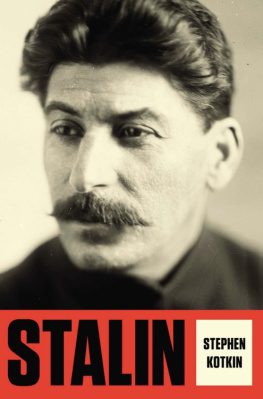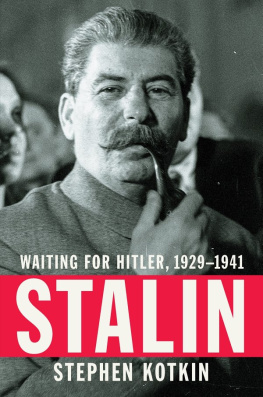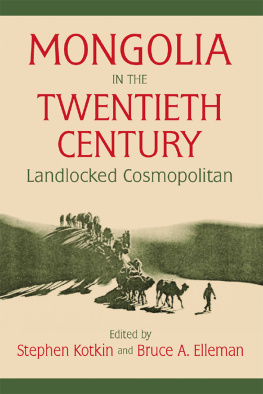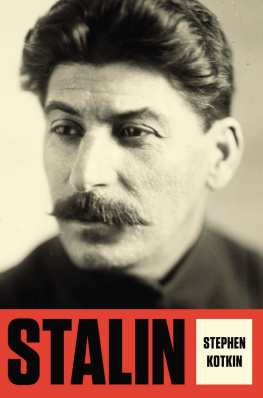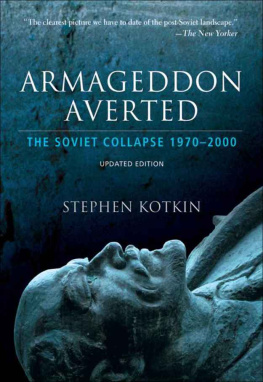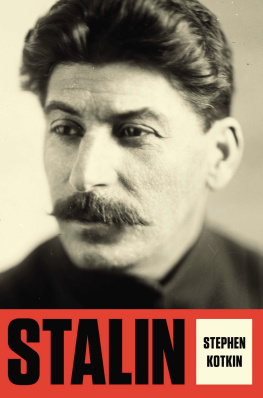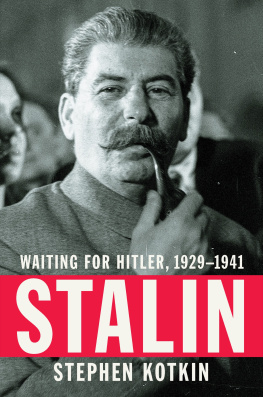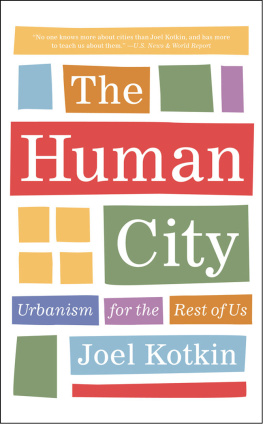Afterword: Stalinism as a Civilization
Although the Communist revolution may start with the most idealistic concepts, calling for heroism and gigantic effort, it sows the greatest and most permanent illusions.
Milovan Djilas
In the 1930s, the people of the USSR were engaged in a grand historical endeavor called building socialism. This violent upheaval, which began with the suppression of capitalism, amounted to a collective search for socialism in housing, urban form, popular culture, the economy, management, population migration, social structure, politics, values, and just about everything else one could think of, from styles of dress to modes of reasoning. Within a steadfast but vague noncapitalist orientation, much remained to be discovered and settled.
Did planning mean centralized decision making in absolutely all matters? Or could a planned economy also permit forms of direct, ostensibly market-like, relations between firms, which remained state-owned? In factories designed and partly built by capitalist firms and containing capitalist-invented technology, were there socialist forms of labor? If so, what were these forms and how did they manifest the purported moral superiority of socialism? In terms of the municipal economy, if there was no private property, would there be no trade? If there was such a thing as socialist trade, how was it to be organized? And what of the law? Was there a specifically socialist justice, and how were socialist courts supposed to function?
What did a socialist city look like? Did a rejection of individualism and a commitment to collectivism mean that socialist housing should not be built to accommodate the family, or was the family compatible with socialism? What of socialist culture: did it signify workers writing poetry, or workers becoming cultured by reading Pushkin? Should socialism permit popular entertainments, and if so, what kind? Was jazz socialist, capitalist, or neither? If capitalist, could jazz nonetheless be permitted, provided there were enough other cultural activities that were unambiguously socialist, whatever those might be? And, perhaps the most difficult question of all, could a socialist revolution create a new elite, and if so, was this just?
Of course, the Soviet regime was a dictatorship and on these questions, unconditionally binding decisions backed by the threat of coercion were handed down from Moscow, without discussion beforehand and with little opportunity to give direct voice to reservations afterward. Yet, from the shop-floor production campaigns to nonprivate trade, from domestic living arrangements to organized recreation, the realization of socialism in practice involved the participation of people, affording ample opportunities for the circumvention of official strictures, spontaneous reinterpretations of the permissible cloaked by professions of ignorance, and myriad other forms of indirect challenges, as well as the discovery of unintended realms not envisioned by the decrees. No one except perhaps certain labor colony inmates with nothing to lose had a completely free hand to act as he or she saw fit, but even leaving aside calculated petty transgressions, living socialism according to the perceived rules made for its share of surprises.
Indeed, one of the most striking aspects of life in the Magnitogorsk of the 1930s were the constant efforts to name and characterize the many surprising, as well as mundane, phenomena encountered in daily life, and then explain their relation to socialism, from the machinations of the shadow economy to the endless search for political enemies. New categories of thinking suddenly appeared, old ones were modified; nothing stood still. This inescapable tangle of discussion and explanationfollowed closely in this monographwas made especially complex given the periodic shifts in policies and laws, sometimes of 180 degrees, such as the reversals on abortion and divorce in the mid-1930s.
Abrupt policy changes have usually been taken as evidence that, contrary to the regimes claims, there was no single ideology, and that in general, ideology had less influence over the shape of events than other, more practical considerations. To argue thusly, however, is to overlook both the process of searching for socialism, rooted in an ideological rejection of capitalism, and the enormous commitment of resources by the regime to maintain a single ideology and relate all events to that ideology, a struggle that the inhabitants of Magnitogorsk had no choice but to take part in. Life in the USSR under Stalin was enveloped not merely in constrained experimentation but in perpetual explication where neither mistakes nor reversals could be admitted, and where socialism, understood as noncapitalism, served as a universal point of reference.
Further misunderstandings surround the shift on abortion and the family in the mid-1930s because it was accompanied by a conspicuous revival But proponents of the great retreat interpretation of Stalinism fail to consider that there was no comparable retreat on private ownership of land and the means of production or on the hiring of wage labor, whose absence was seen as the defining characteristic of socialism. It was in this unwavering repudiation of exploitation that the USSRs claims to have brought about a civilization distinct from capitalism were grounded, whatever the other vacillations.
At bottom, the notion of a great retreat has always been based on the assumption that true revolution and an imperial state are inherently incompatible, an historically indefensible tenet. From the beginning of the revolution, Great Russian domination coexisted uneasily with the striving for a multinational identity, a tension exacerbated by the circumstance that socialism was, in the language of the day, built in one country. By and large, however, the great retreat interpretation removes consideration of the fate of the revolution from that geopolitical context. Soviet socialism formed part of the same historical epoch as Nazism and fascism, against which it was locked in a deadly competition.
In that light, the strengthening of the family and the promotion of Great Russian nationalism are better appreciated as, on the one hand, part of the groping for an understanding of what constituted socialism and, on the other, as indicative of a strategic shift from the task of building socialism to that of defending socialism. This shift became noticeable with the anxious attention given to the civil war in Spain, where Hitler supported Francos counterrevolution, and to Mussolinis imperialist war in Abyssinia. It was around this time, 1936, that socialism in the USSR was declared built in its foundations, and yet the external threat, rooted in what was called capitalist encirclement, appeared more menacing than ever.
This paradoxical combination of triumph and heightened vulnerability was used as one of the principal devices to stoke the terror of 193638, a bizarre episode that contemporaries struggled with little effect to comprehend and accept. Not even the enormously dysfunctional terror, however, proved capable of invalidating the USSRs claim to being a socialist society and therefore the fulfillment of October. Such a claim continued to make sense and motivate people the world over until the very end in 1991a circumstance that the historian may or may not find abhorrent but has no right to dismiss and every obligation to explain. One can argue that millions of people were ignorant or deceived. Or one can try to understand how so many people could have reasoned the way they did, holding apparently contradictory views, fearing terror yet believing that they had built, and lived under, socialism.

Inside Stalins USSR, the appeal of socialism had several layers, including the prospect of a quick leap, not simply into modernity but a superior form of modernity, the corresponding attainment of high international status, a broad conception of social welfare, and a sense of social justice that was built into property relations. Despite the long, vicious political struggle for power, rampant opportunism and careerism, and the violence and hatred that were unleashed, the USSR under Stalin meant something hopeful. It stood for a new world power, founded on laudatory ideals, and backed up by tangible programs and institutions: full employment, subsidized prices, paid vacations for workers, child care, health care, retirement pensions, education, and the promise of advancement for oneself and ones children.


